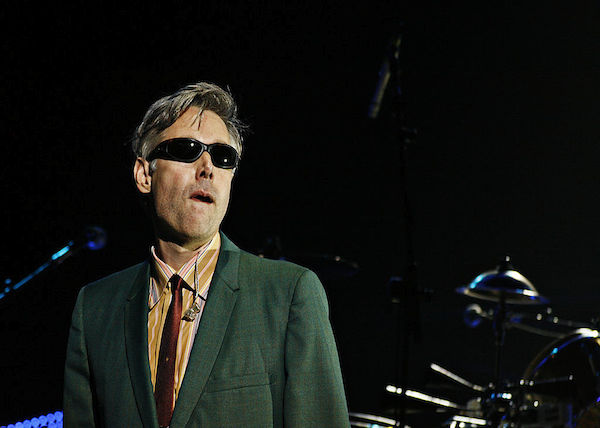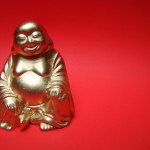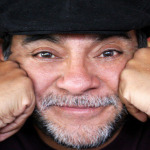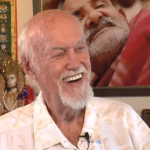Beastie Boy Adam Yauch was an international superstar in the realms of hip-hop and humanitarianism, using his fame to spread compassion for others.
Before his untimely passing in 2012 at the young age of 47, Adam Yauch reinvented himself several times. He became a hip-hop icon from the early days of the musical genre, a proponent of widespread compassion, a conduit for educating others, and a man who was intricately in touch with his own spirituality and happiness.
Born in Brooklyn in 1964, he was pulled to music by New York City’s hardcore punk scene, supporting bands like Dead Kennedys and Black Flag, Yauch founded his own punk band with friend Mike Diamond “Mike D” at the age of 17.
The group would eventually develop into the Beastie Boys, fusing their punk rock style with funk and soul instrumentation and rapping over it to produce a unique hip-hop sound. Yauch, took the stage name “MCA” and played bass for the group, which also featured Mike D on drums and Adam “Ad-Rock” Horovitz on guitar.
The Beasties, whose name is an acronym for “Boys Entering Anarchistic States Toward Internal Excellence,” launched their careers into the stratosphere with their 1986 debut album Licensed to Ill, which was produced by Rick Rubin and saw two hit singles maintain a place on the Billboard charts. Yauch admits that the acronym was silly when they came up with it, but that it was coincidentally appropriate to describe them later in life.
The group would go on to make seven albums that reached platinum or better status, evolving musically with each record. They won three Grammy awards, the last of which was for their instrumental album, The Mix-Up, in 2008. At the time of their induction into the Rock and Roll Hall of Fame, they were one of only three groups to ever receive the honor.
As the Beastie Boys grew as a band, they also grew as human beings, leaving behind the adolescent subject matter of Fight For Your Right for more thoughtful lyricism. Yauch was at the center of this development, morphing from a young man who was prone to vandalism and drug use to a man seeking spiritual enlightenment by the age of 30.
In the early 90’s, Yauch had been doing a lot of reading about different religions, but he found his spiritual home in Buddhism when he visited Nepal and Kathmandu. In an interview with Carole Tonkinson of Tricycle Magazine in 1994, he explained what drew him to Buddhism.
“The people that I’ve met are really centered in the heart; they’re coming from a real clear, compassionate place.”… “In terms of what I understand, Buddhism is like a manual to achieve enlightenment.”
Enlightenment, for Yauch, was not a self-motivated goal. Rather, he wished to spread knowledge and compassion. After a chance encounter with the Dalai Lama, he was persuaded to take the Bodhisattva Vow, which is somewhat like a promise to aid others in achieving enlightenment.
“Being enlightened,” he said in the same interview, “is the best way to benefit all other beings—from that place you’re able to help more.”
And help he did.
His personal spiritual regiment including morning and pre-bedtime meditation, but his sense of activism kicked into overdrive as he began taking steps toward spreading awareness of the unfortunate plight of the Tibetan people, which he became keenly acquainted with during his journey to the region.
Yauch founded a non-profit organization called the Milarepa Fund, whose mission was to “promote universal compassion through music.”
During the 1994 Lollapalooza tour, the Beastie Boys and the Milarepa fund sponsored a tent that passed out flyers and spread awareness of the suffering of the Tibetan people under Chinese oppression. Proceeds from two of the hip-hop group’s songs, Shambala and Bodhisattva Vow were donated to the fund to aid those people, and Yauch even arranged for Namgyal monks, the disciples of the Dalai Lama, to tour with the Beasties, carrying out purification rituals and sacred dances on stage.
Other activists were skeptical of the marriage of the former punkers and gritty rappers with holy men, but Yauch saw past the misconceptions of others.
“We have supporters of Tibet come up to help us, and sometimes they say, ‘What the hell are you doing? These are the Dalai Lama’s personal monks and you’ve got them out here in front of these drunken fools.’ They’ve just got to chill out. There’s a lot of Western elitism in Buddhism, like Buddhism is their thing, so there’s hesitation about doing anything that opens up young people to Buddhism.”
Yauch believed that such hesitation was “dangerous,” because it would never allow the message or the “dharma” to proliferate.
He would go on to use his music for new charitable ventures, organizing the Tibetan Freedom Concert in San Franciso, which became a series that pulled in other musical groups and influenced the consideration and participation of many onlookers and listeners.
Yauch lived the more enlightened years of his life doing things that were consciously kind to other people, believing that humanity had a chance to evolve as a whole, all while continuing to make music and enjoy time with his family.
In an interview with Project Happiness, Yauch explained what long-term happiness was to him.
“In terms of lasting happiness, one way to look at it is that anything, any happiness that you experience in life, is the result of constructive things, or altruistic things that you’ve done. It’s all kind of the karma of past actions. In the same sense, any unhappiness that you experience in the present is the result of, of selfish things that you’ve done in the past.”
Yauch was diagnosed with cancer of the parotid salivary gland in 2009, and his spirituality was a big part of his battle with the disease. He stayed positive throughout his fight, assuring fans that his vocal chords would not be affected.
In an email to his admirers, he noted that he and a group of friends were getting together to meditate twice a day, and he invited everyone to join him in visualizing “smashing apart all the cancer cells of the world.”
Even in his vulnerable state, Yauch was concerned about everyone who suffered from cancer, not just himself.
Adam Yauch, a.k.a. MCA passed away in 2012, after battling cancer for three years. He was and still is mourned by a loving family, accomplished musical counterparts and friends, and a throng of fans of both his music and his work as a humanitarian.
[image: via wiki commons]











